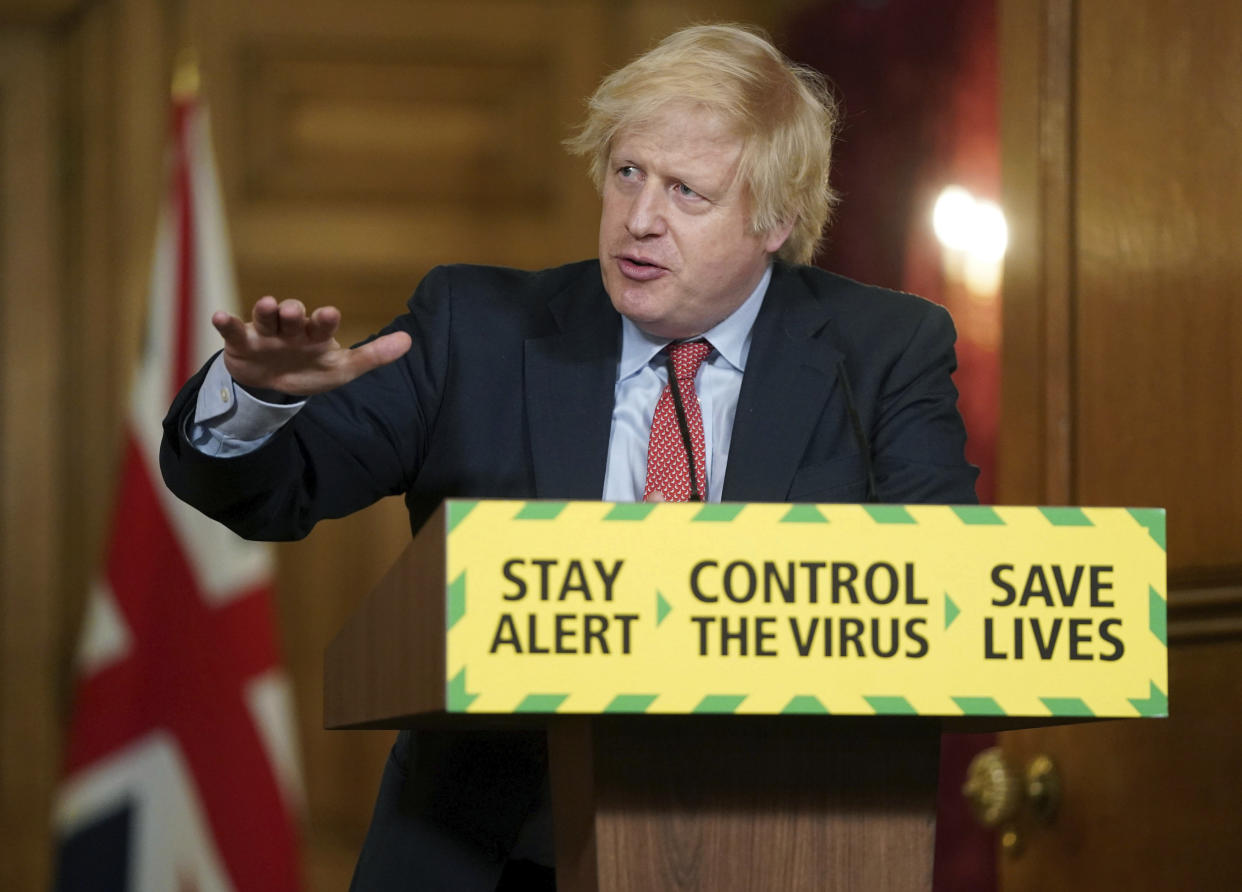Government scientists were warned to go into full lockdown two weeks before measures were brought in

Scientists advising the government were warned it was necessary to enforce the coronavirus lockdown two weeks before it was announced, a leaked report has suggested.
According to Channel 4 News, the paper – written by Professor Sir Steven Riley of Imperial College London – warned that there could be 1.7 million deaths if the government did not shift its strategy in dealing with the pandemic.
The paper is believed to have been presented to a group of scientists who then go on to advise ministers.
Riley said that the government should abandon its mitigation strategy and follow the lead of countries like Japan, South Korea, Hong Kong, Singapore and Italy by implementing a full lockdown.

Riley’s report
In early March, Boris Johnson’s government frequently stated at the daily press briefing that they were “following the scientific advice” in its response to growing fears around the impact of the virus.
Now it has been claimed a leaked report, dated 9 March, had been written for modellers working alongside the group of government experts known as SPI-M (Scientific Pandemic Influenza Group on Modelling). These modellers are part of the Sage (Scientific Advisory Group for Emergencies) group of scientists, which has provided regular and critical advice directly to the government to form the UK’s pandemic response.
Riley is quoted in the paper as saying there was “strong evidence with which to abandon mitigation strategies, justified in any way by the possibility of a short epidemic”.
The report also states: “Governments need to devote the entirety of their attention and resources to creating viable ongoing solutions to the presence of this virus.
“We suggest that the first step is to adopt stringent fixed-term social distancing so as to give time for detailed planning the rapid development of any accompanying technology.”
Timeline of advice given to government
Minutes summarising topics discussed by Sage can be found on the government website.
Despite Professor Riley’s apparent warnings on 9 March, minutes from the Sage meeting on 10 March do not appear to include any agreement that such measures should be taken. Instead the advice to government is that Sage will “include consideration of the effects of physical distancing among individuals” at their next meeting.
Minutes from the meeting on 13 March show the government was then urged to start considering stricter measures by social distancing of the elderly and household isolation of anyone showing symptoms.
But discussion of a full lockdown was limited to Sage experts saying they would be “considering further social distancing interventions – that may best be applied intermittently, nationally or regionally, and potentially more than once”.
And on 16 March, advisers at Sage told the government that the advice “has changed regarding the speed of implementation of additional interventions”.
Their report reads: “Sage advises that there is clear evidence to support additional social distancing measures be introduced as soon as possible.”
Boris Johnson announced a full lockdown on 23 March – two weeks after Riley’s report.
Fewer deaths
The leaked document comes after Neil Ferguson, professor of mathematical biology at Imperial College London, told the science and technology select committee of MPs that the number of deaths from coronavirus could have been halved if lockdown was introduced a week earlier.
He explained that, based on what was known about transmission and fatalities at the time, the actions taken were warranted.
Ferguson said: “The epidemic was doubling every three to four days before lockdown interventions were introduced.
“So, had we introduced lockdown measures a week earlier, we would have reduced the final death toll by at least a half.
“So whilst I think the measures, given what we knew about this virus then in terms of its transmission and fatality, were warranted, certainly had we introduced them earlier we would have seen many fewer deaths.”

James Naismith, professor of structural biology at the University of Oxford, said there was a “lot for the UK to learn” from how the pandemic was handled.
He added: “During the exponential phase of the virus, even a few days can make a big difference. The UK’s significantly higher death toll than Germany is most likely down to difference in the timing of the lockdown.
“The UK, like many other countries, struggled to properly understand the true extent of viral infection and were, as a result, slower to act. The brutal truth is we lacked the testing capability as the virus took hold here...
“When this disease is behind us, there will have to be a clear-eyed evaluation of what lessons science, media, medicine and government can learn. With over 40,000 tragedies, no serious person can believe there is not a lot for the UK to learn.”
Lockdown timing
The UK was put into lockdown on 23 March in an attempt to limit the spread of coronavirus.
Ferguson’s comments were put to Boris Johnson, chief scientific adviser Sir Patrick Vallance, and chief medical officer Professor Chris Whitty at the daily Downing Street press conference.
Sir Patrick said it would be important to look back and see what measures had been most effective, and would be useful in determining what measures to implement in the future, if necessary.
Coronavirus: what happened today
Click here to sign up to the latest news, advice and information with our daily Catch-up newsletter
Read more about COVID-19
How to get a coronavirus test if you have symptoms
How easing of lockdown rules affects you
In pictures: How UK school classrooms could look in new normal
How public transport could look after lockdown
How our public spaces will change in the future
Help and advice
Read the full list of official FAQs here
10 tips from the NHS to help deal with anxiety

 Yahoo News
Yahoo News 


